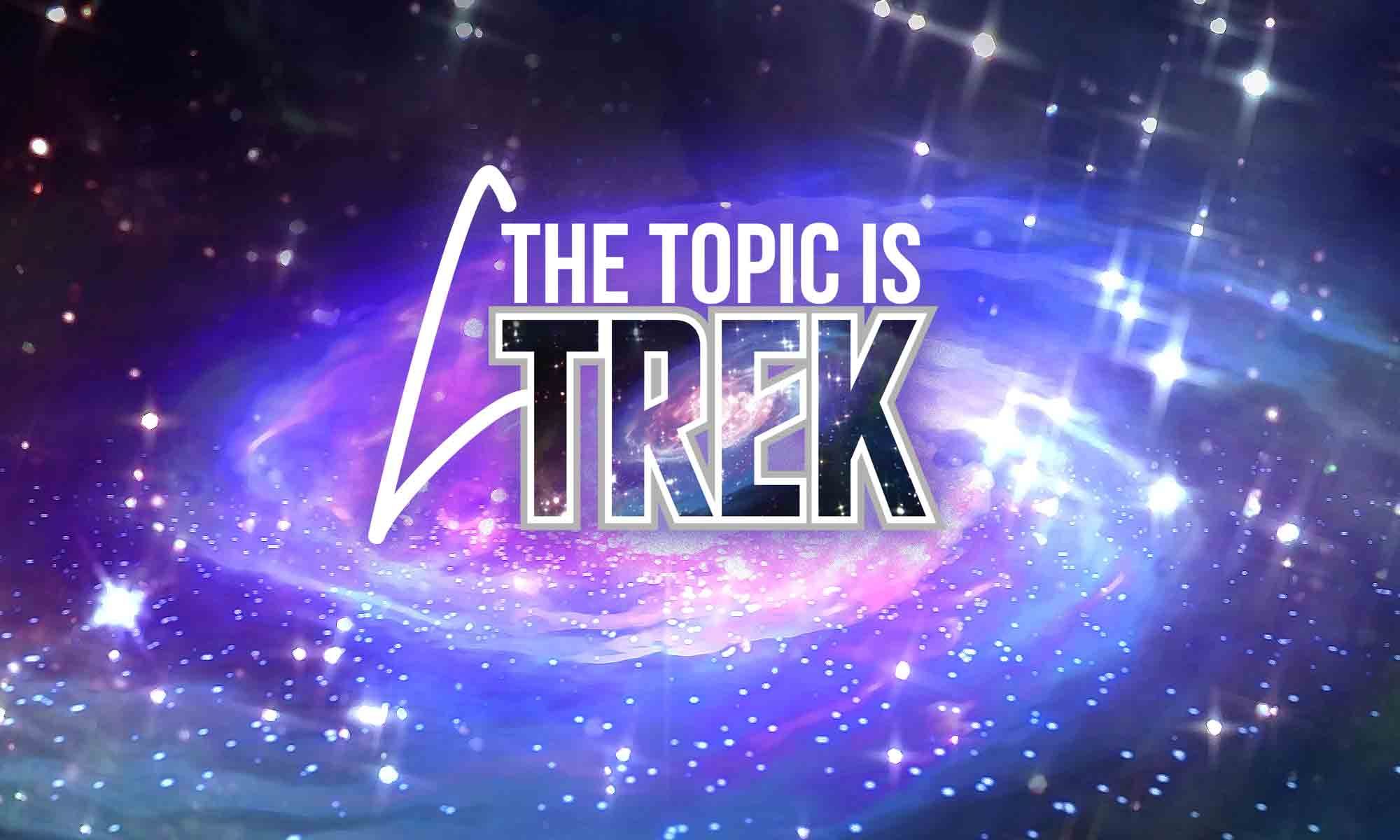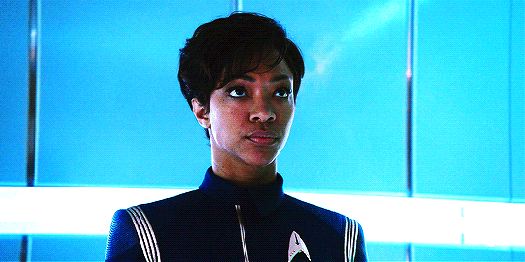Star Trek: Discovery Season 1, Episode 3
“Context is for Kings”
Posted by Clinton

In a series where flawed heroes will either rise or fall, the U.S.S. Discovery may be the most flawed of all.
The U.S.S. Discovery is a doomed ship. At least its mission appears to be. After all, the biotechnology research that Lt. Paul Stamets (Anthony Rapp) is conducting bears no resemblance to anything we have seen before, or since, in the “Star Trek” universe. That would indicate one of two things: the experiment is a catastrophic failure, or the experiment is a resounding success which places the ship out of this universe, if not time itself. Either way, Discovery, or at least members of its crew, are most likely doomed.
Discovery’s sister ship, the U.S.S. Glenn, has born witness to the volatile nature of the so-called “spore drive.” That ship’s attempt at a “Speirein 900” displacement apparently propelled it to the edge of Klingon space, but also killed every crew member on board. Stamets’ friend and colleague, Straal (Saad Siddiqui) spoke of the advantages of “not growing your own,” possibly hinting at the involvement of the creature that rampaged through the corridors of the Glenn. That creature is now aboard Discovery.
And what do we know of Discovery? We know that she is “right off the assembly line” new. We see that her Captain, Gabriel Lorca (Jason Isaacs) not only wants to win the Federation-Klingon war, he is willing to do anything at all to make that happen. We see indications that Discovery’s security officer, Comdr. Ellen Landry (Rekha Sharma) has no use for Vulcans. And there are indications that the science being conducted aboard Discovery is probably not something the United Federation of Planets would approve.

As we learned in episodes one and two, each character on “Star Trek: Discovery” is presented to us with a potentially fatal flaw and will be defined by how they act over time. That could very well include the Discovery herself.
Last week I spoke of the journey of Michael Burnham (Sonequa Martin-Green). How far she had fallen, and what heights she must scale to reach redemption. In “Context is for Kings,” she had to run the gauntlet of scorn, ridicule and rejection to finally begin the long climb up, both figuratively and literally.
It has been six months since Burnham was sentenced to life in prison for her crimes. Crimes she confesses to Saru (Doug Jones) that she thinks about every single day. She has withdrawn into herself, defaulting to her swallowed-emotions Vulcan upbringing. She is so far removed she does not even struggle against the impending destruction of her prison transport shuttle. In fact, she seem calm in the face of near-certain death.
It seems nothing in this universe can break through that wall. Nothing, save one thing: the relentless, unbridled, enthusiasm of Cadet Sylvia Tilly (Mary Wiseman). Not at first, of course. This relationship starts off as icy cold as space itself. Then tension turns to an uneasy truce. By the end of the episode, Burnham shares not only a book with Tilly, but something more precious — a memory. It seems that Tilly will play a key role in Burnham’s journey.

TIlly, in return, offers Michael Burnham something the others can not, an actual connection with her humanity. Saru can offer an alien’s cautious respect and Captain Lorca can give Burnham purpose while still hiding secret agendas. But Tilly cares. Yes, she wants to be mentored, but she is honest and up-front about it. She is not afraid to admit she is wrong. Her wide-eyed optimism is an exaggeration of what many have come to associate with “Star Trek.”
So now we must also carefully watch Cadet Sylvia Tilly. She may be our canary in the coal mine. If her enthusiasm sours, or something untoward happens to her, Michael will surely stumble.
And on board the U.S.S. Discovery, a stumble can be a very, very dangerous thing.
Next week: “The Butcher’s Knife Cares Not for the Lamb’s Cry”
Random thoughts and observations:
- Is Lorca so badass he can actually stop a tribble from reproducing?
- We have our first two “red shirt” deaths, as “unnamed prison shuttle pilot” tumbles away in space and non-speaking role security office Kowsky is killed by the creature on the Glenn
- The [threat ganglia] on the back of Saru’s neck have flipped open again, this time as the prison shuttle departs. The first time we saw this, the Klingon ship decloaked in front of the Shenzhou.
- Captain Lorca is very into standing desks and stand-up meetings
- We continue to see eye close-up shots
- Is a black badge special ops or something else? I don’t believe it’s Section 31, as they are more discreet about their operations
- Nice re-imagining of the TOS square data tape
- The engineering test bay has a vibe that actually feels like a step towards the TOS aesthetic, with hints of “Enterprise”
- Nice collection of twisted memorabilia in Lorca’s science lab




